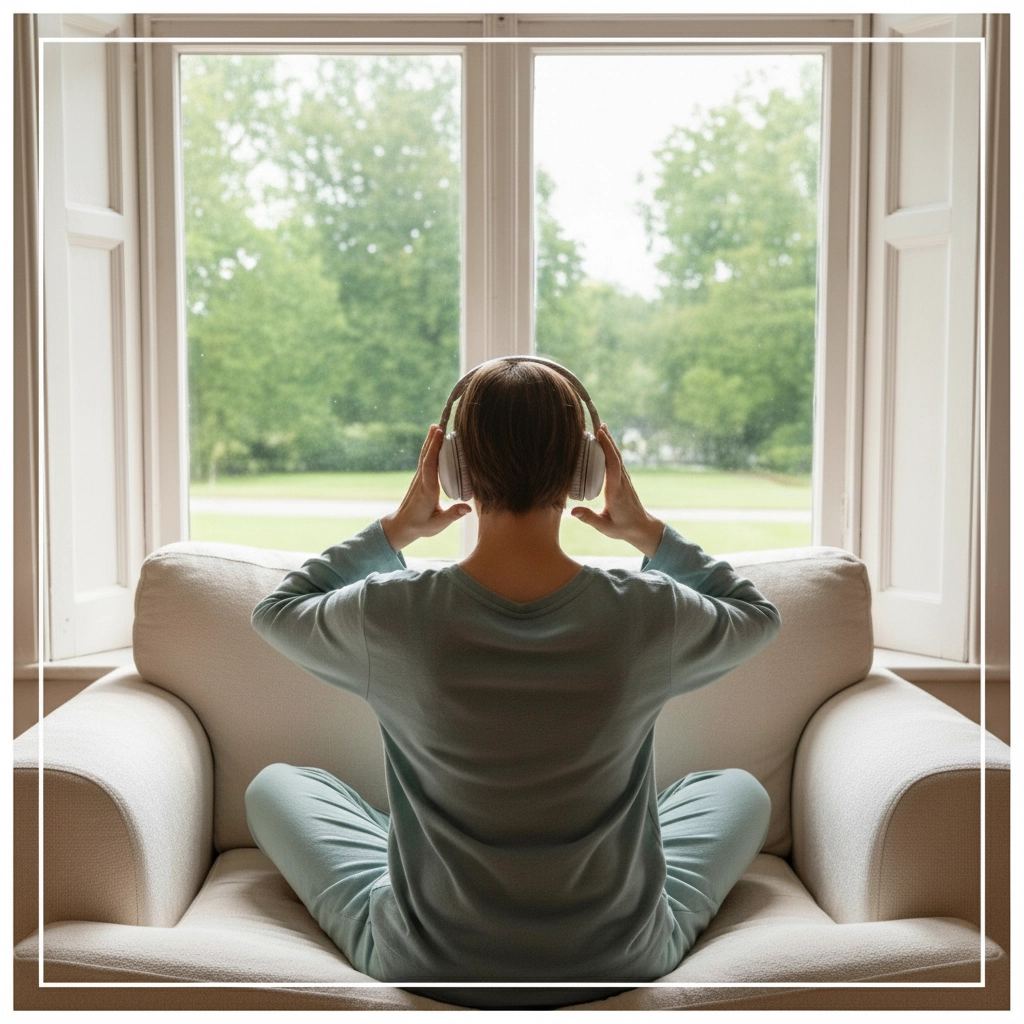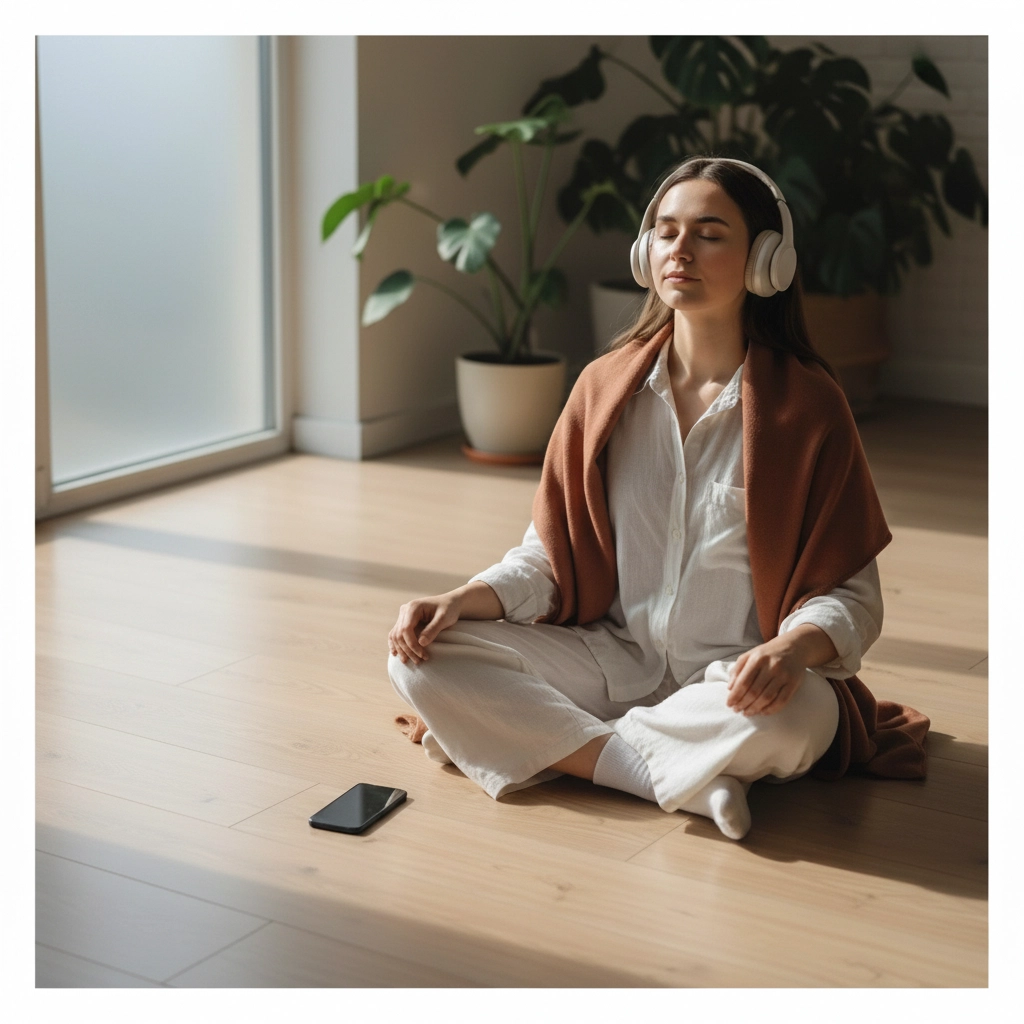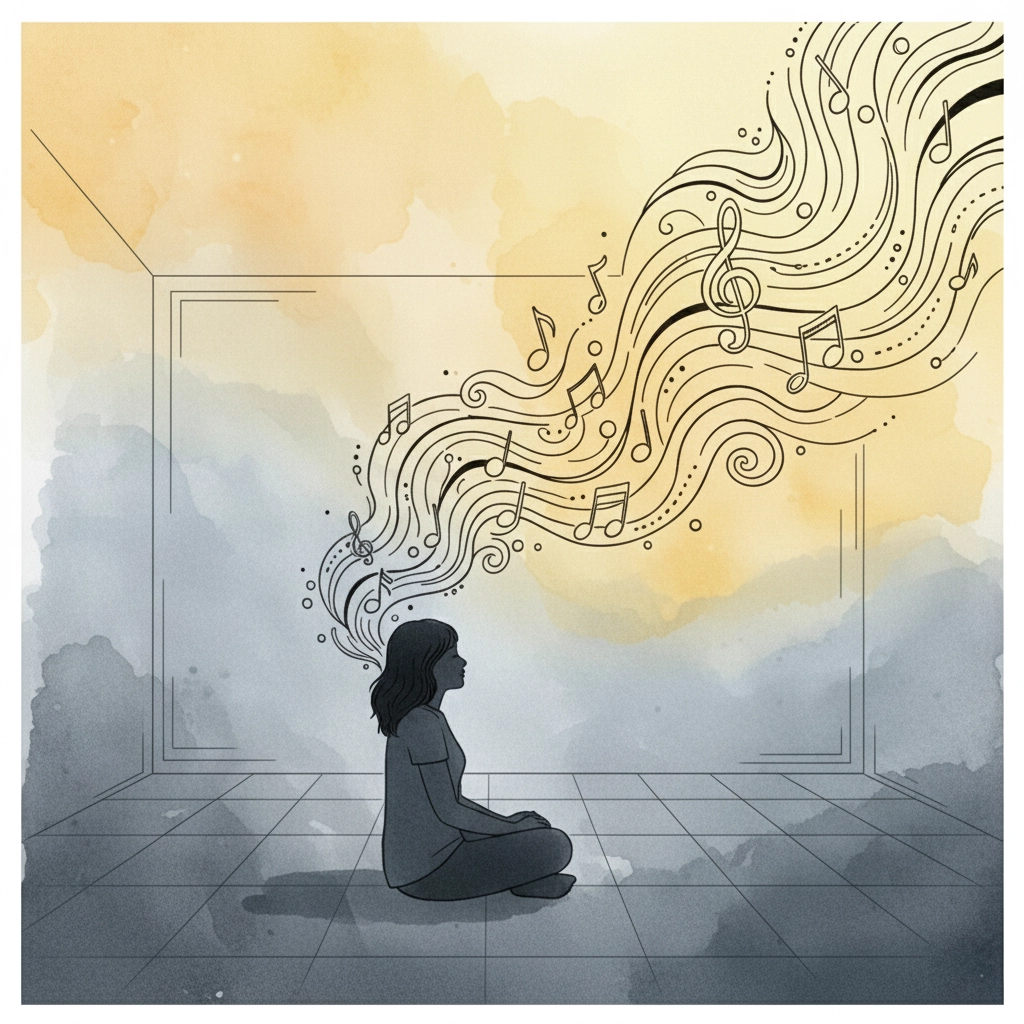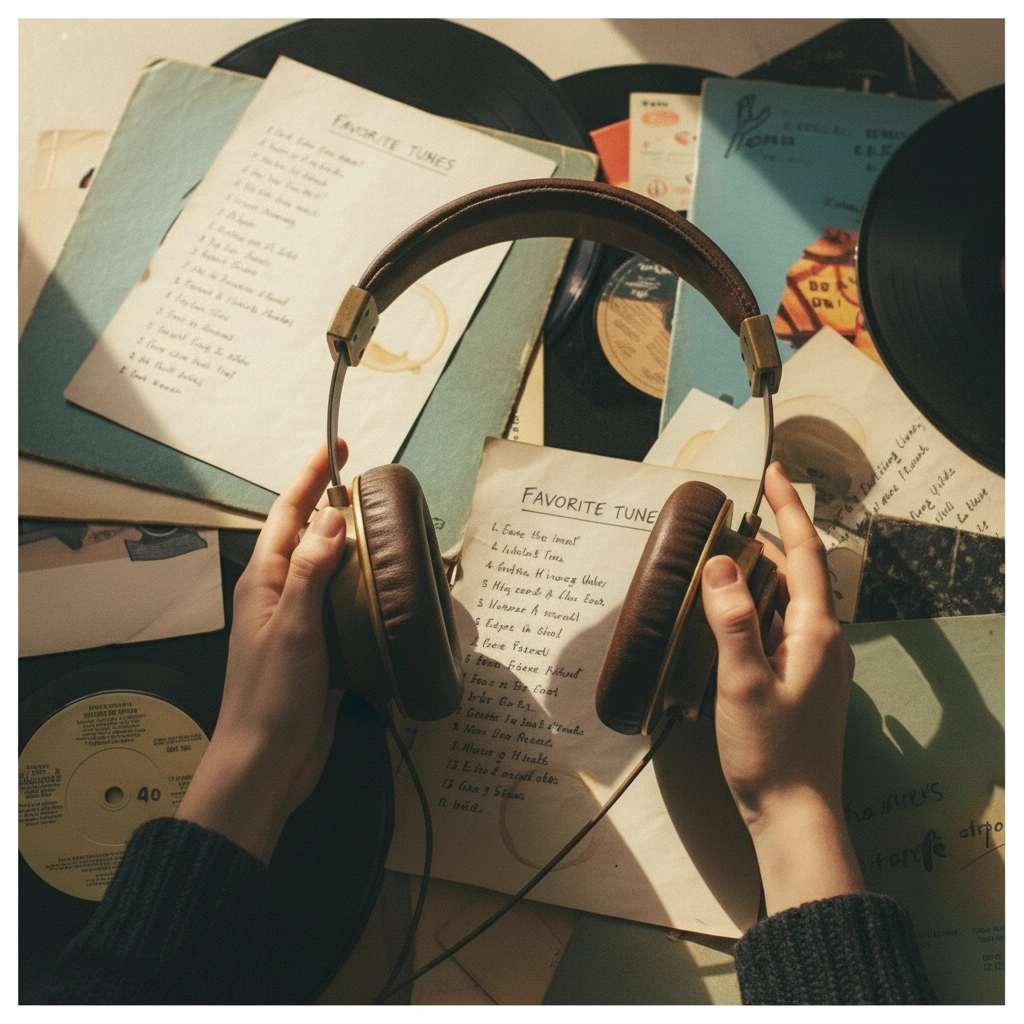7 Mistakes You're Making with Social Media Detox (and How Music Therapy Actually Helps)

Look, I'll be honest with you, this whole social media detox thing is harder than it looks. I'm sitting here writing this while actively trying to stay off Instagram myself, and it's such a weird place to be. We know we need to step back, but then we go about it all wrong and end up feeling like failures when we inevitably scroll at 2 AM again.
Here's the thing though: most of us are making the same mistakes over and over, and nobody's talking about how music can actually help us through this shit. So let's get real about what's not working and how we can actually make this stick.
Mistake #1: Going Full Cold Turkey (Because We're Overachievers)
We love dramatic gestures, don't we? "That's it, I'm deleting everything RIGHT NOW." And then by day three, we're downloading apps again because we feel completely disconnected from the world.
Going cold turkey sounds hardcore, but it's setting you up to fail. Your brain is literally wired for those dopamine hits from notifications and likes. Cutting it all off suddenly is like yanking the steering wheel when you're trying to change lanes, you're gonna crash.
What to do instead: Start with two-hour breaks. Then try a full day. Work up to a weekend. Give your brain time to adjust.
The music therapy part: Create a "transition playlist" for when you feel the urge to scroll. I'm talking about songs that help you sit with discomfort, maybe some Bon Iver for the melancholy moments, or Lizzo when you need to remind yourself you're a badass who doesn't need validation from strangers online.

Mistake #2: Creating a Giant Void (And Then Staring Into It)
This one hits hard because I've been there. You delete the apps, put your phone down, and then... what? You're sitting there with all this empty time and your brain is like "well, this sucks."
We forget that social media wasn't just taking up time, it was filling emotional needs. Connection, entertainment, distraction from our own thoughts. Take it away without replacing it, and you're left with a lot of uncomfortable feelings.
What to do instead: Make a list before you start your detox. What are you actually going to DO with those three hours you spent scrolling? Read? Call your mom? Learn guitar? Whatever it is, have it ready.
The music therapy angle: This is where curated playlists become your best friend. Create specific playlists for different activities, one for reading, one for cleaning, one for those moments when you just need to feel something. Music becomes your new scroll, but it's actually feeding your soul instead of draining it.
Mistake #3: Going Underground (Without Telling Anyone)
I get it, announcing your social media detox feels pretentious. Like you're begging for attention or trying to be holier-than-thou. But here's what happens when you don't tell anyone: people think you're ignoring them, you miss important stuff, and you feel even more isolated.
What to do instead: Just be real about it. Send a text to your close friends, post one final "taking a break" story if you want. It doesn't have to be a big production.
Music therapy connection: Share your detox playlists with friends. It's a way to stay connected without the toxic parts of social media. "Hey, I'm taking a break from Instagram, but here's what I'm listening to this week." It's intimate and real in a way that posting stories never was.
Mistake #4: Pretending It's Just About Willpower
We act like social media addiction is a character flaw instead of recognizing that these platforms are literally designed to hijack our brains. They employ neuroscientists and behavioral psychologists to make their apps as addictive as possible. You're not weak: you're fighting a billion-dollar machine designed to capture your attention.
What to do instead: Learn about the science. Understand how the reward cycles work, why notifications are so hard to ignore, how infinite scroll keeps you trapped. Knowledge is power.
Where music comes in: Your brain needs new reward pathways. Music releases dopamine too, but in a healthier way. Instead of chasing likes, you're chasing that perfect song that makes your chest tight or gives you chills. Create "dopamine playlists": songs that genuinely make you feel good without the crash that comes after scrolling.

Mistake #5: Expecting to Be "Fixed" in a Week
We want instant results because, ironically, that's what social media trained us to expect. Post a photo, get immediate feedback. Send a message, get a quick response. But healing doesn't work like that, and neither does changing deeply ingrained habits.
Even a two-week detox can improve your sleep and decrease anxiety, but the real work is building new patterns that stick. This isn't about fixing yourself: you're not broken. It's about creating space for who you actually are underneath all that digital noise.
Reality check: Be gentle with yourself. Some days will be harder than others. That's not failure, that's being human.
Music as medicine: Build playlists for different stages of your detox journey. Week one might need more upbeat, motivational songs to keep you going. Week three might call for gentler, more reflective music as you start processing emotions that were getting buried under constant stimulation. The National's "I Need My Girl" hits different when you're not numbing yourself with endless content.
Mistake #6: Leaving the Door Wide Open (AKA Keeping All Your Notifications)
This one's so obvious but we all do it. You decide to take a break from social media but leave all the notifications on. Every ping is a little voice saying "come back, something interesting is happening without you." It's like trying to quit smoking while keeping cigarettes in your pocket.
What to do instead: Turn off everything that's not essential. And I mean everything. If it's not a call, text, or actual emergency, it can wait.
Sound healing approach: Replace notification sounds with intentional audio. Set gentle music alarms instead of harsh buzzing. Use nature sounds or calming tones for the notifications you do keep. Your phone should sound like a meditation app, not a casino.
Mistake #7: Ignoring Your Feelings (Because That's Easier)
The hardest part about stepping away from social media isn't the FOMO or boredom: it's everything you've been avoiding. When you're not constantly consuming content, you start noticing things. How lonely you actually feel. How anxious you get in silence. How much you've been using the scroll to escape from yourself.
We treat detox like it's just about changing behavior, but it's really about sitting with who we are without all the noise. And that's fucking scary sometimes.
What to do instead: Practice sitting with discomfort. Notice when you reach for your phone and ask why. What are you trying to avoid? What do you need right now that isn't on a screen?
Music as therapy: This is where music becomes medicine instead of just entertainment. Create playlists for different emotions: anxiety, sadness, anger, loneliness. Let yourself feel things fully with the right soundtrack. Phoebe Bridgers for the sad days. Rage Against the Machine when you're angry at the world. Frank Ocean when you need to process heartbreak you didn't know you were carrying.

The Real Talk About Music Therapy
Here's what we've learned at Breathe N Bounce: music doesn't just make you feel better: it helps you feel, period. When you're constantly scrolling, you're not processing emotions, you're just pushing them down with more stimulation. Music gives you space to actually experience what you're going through.
Create different playlists for your detox journey:
- Morning motivation (for when you wake up reaching for your phone)
- Anxiety management (Sigur Rós and ambient stuff work wonders)
- Anger processing (sometimes you need to scream along to something)
- Loneliness comfort (connection through shared human experience)
- Reflection and growth (for those deeper moments of self-discovery)
Music becomes your new social media, but instead of numbing you, it helps you feel more like yourself.
Where We Go from Here
Look, social media isn't inherently evil, and you don't have to become a digital hermit. The goal is building a healthier relationship with these tools so they serve you instead of the other way around. Some days you'll nail it, some days you'll scroll for two hours watching TikToks about cats. Both are okay.
The point is creating space: space to breathe, to think, to feel, to be bored, to be present. And music can hold that space with you when the silence feels too heavy.
We're all figuring this out together, and that's exactly how it should be. Start small, be patient with yourself, and remember that every moment you choose presence over numbing is a victory worth celebrating.
Your brain will thank you, your relationships will thank you, and maybe: just maybe: you'll remember who you are underneath all that digital noise.

